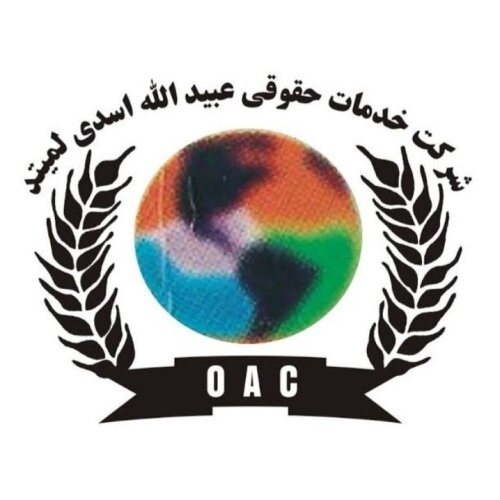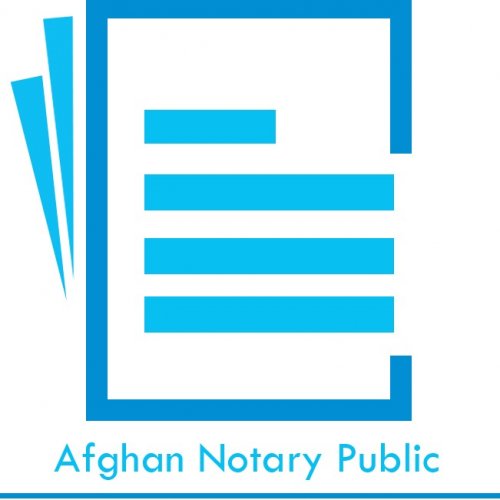Best Sanctions & Export Controls Lawyers in Kabul
Share your needs with us, get contacted by law firms.
Free. Takes 2 min.
List of the best lawyers in Kabul, Afghanistan
About Sanctions & Export Controls Law in Kabul, Afghanistan
Sanctions and export controls laws in Kabul, Afghanistan govern the transfer of goods, technology, and services across national borders. These regulations are established to ensure national security, prevent the proliferation of weapons, protect the economy, and comply with international obligations. Afghanistan is subject to both domestic regulations and international sanctions issued by organizations such as the United Nations Security Council. The local authorities control exports of certain items, particularly those that could be used for military purposes or in connection with sanctioned individuals or groups. Understanding these laws is important for any business or individual involved in cross-border trade or transport of goods in Kabul.
Why You May Need a Lawyer
Sanctions and export controls can be complex, and violations may lead to severe penalties, including fines, confiscation of goods, loss of licenses, or even imprisonment. People and companies in Kabul may need a lawyer in situations including:
- Exporting or importing goods subject to export controls
- Dealing with assets or funds potentially linked to sanctioned individuals or entities
- Responding to government investigations or audits regarding trade practices
- Applying for export or import licenses and ensuring proper documentation
- Understanding the impact of international sanctions on business operations
- Negotiating or terminating contracts with foreign partners or suppliers
- Receiving notification of a suspected sanctions or export control violation
Having a lawyer can help you navigate regulations, reduce legal risk, and respond effectively to government inquiries.
Local Laws Overview
Afghanistan’s approach to sanctions and export controls is influenced by both national and international frameworks. Locally, the main aspects include:
- International Sanctions Compliance: Afghanistan abides by United Nations sanctions, which may target specific countries, groups, or individuals.
- Afghanistan Customs Law: Controls the import and export of goods, including the need for certain licenses, documentation, and customs declarations.
- Asset Freezing and Reporting Obligations: Financial institutions and businesses may be required to freeze assets linked to sanctioned entities and report suspicious activities to the authorities.
- Restricted Goods and Technologies: Certain products, like arms and dual-use items, are specifically regulated.
- Penalties and Enforcement: Violations can result in significant penalties, loss of business privileges, or criminal prosecution.
The Afghan government, through its ministries and agencies, oversees the implementation and enforcement of sanctions and export control measures in Kabul.
Frequently Asked Questions
What is the purpose of sanctions and export controls in Kabul?
Sanctions and export controls are designed to enforce national and international security, uphold foreign policy objectives, prevent the spread of weapons, and ensure Afghanistan’s compliance with global agreements.
Who enforces these laws in Kabul?
Sanctions and export controls are enforced by Afghan government bodies, including the Ministry of Foreign Affairs, the Ministry of Finance, and Afghanistan Customs, often with input from international partners.
What goods are typically restricted or controlled for export?
Commonly restricted items include weapons, military equipment, dual-use technologies, certain chemicals, and goods linked to sanctioned individuals or regions.
Can my business export to any country?
No. Exporting to countries or individuals under sanctions is prohibited. You must review the most recent sanctions lists before engaging in cross-border transactions.
What penalties exist for violating sanctions or export controls?
Penalties can include heavy fines, seizure of goods, loss of export privileges, and criminal prosecution, depending on the severity of the violation.
How do I know if a person or entity is on a sanctions list?
Sanctions lists are published by the United Nations and circulated by Afghan authorities. Legal professionals can help you check these lists before making any business transaction.
Can I get an exemption or license to export a restricted item?
In some cases, yes. You can apply for an export license from the relevant Afghan ministry, but approval is subject to strict review and, sometimes, international oversight.
What should I do if I suspect a transaction may violate sanctions?
Consult a qualified lawyer immediately and notify the relevant authorities if required. Do not proceed with the transaction until you receive clear guidance.
Are there specific reporting obligations for financial transactions?
Yes. Banks and certain businesses must report suspicious transactions and freeze the assets of listed individuals or organizations.
How can a lawyer help with sanctions and export controls?
A lawyer can interpret the regulations, assess your business’s compliance, help you apply for permits, respond to government inquiries, and represent you in case of investigations or disputes.
Additional Resources
If you need more information or assistance regarding sanctions and export controls in Kabul, consider reaching out to the following:
- Afghanistan Ministry of Foreign Affairs - Provides information about international obligations and policy guidance.
- Afghanistan Customs Department - Handles export-import licensing, customs declarations, and enforcement.
- United Nations Assistance Mission in Afghanistan (UNAMA) - Offers updates on UN sanctions and compliance requirements.
- Afghanistan Bank (Da Afghanistan Bank) - Regulates and oversees financial reporting of sanctioned assets.
- Local law firms or legal aid centers in Kabul - Deliver practical legal support and representation.
Next Steps
If you believe you may be affected by sanctions or export controls, or if your business is involved in cross-border trade in Kabul, consider these steps:
- Gather all information and documentation related to your activities or transactions.
- Check if any products, technologies, or parties involved are subject to restrictions or sanctions.
- Seek advice from a qualified lawyer experienced in sanctions and export control matters in Afghanistan.
- Contact the relevant Afghan authorities for any licensing or clarification needs.
- Review and update your compliance procedures regularly to stay aligned with current laws and international obligations.
Taking prompt action and seeking professional legal advice can help you avoid serious penalties and ensure your operations are compliant with both local and international regulations.
Lawzana helps you find the best lawyers and law firms in Kabul through a curated and pre-screened list of qualified legal professionals. Our platform offers rankings and detailed profiles of attorneys and law firms, allowing you to compare based on practice areas, including Sanctions & Export Controls, experience, and client feedback.
Each profile includes a description of the firm's areas of practice, client reviews, team members and partners, year of establishment, spoken languages, office locations, contact information, social media presence, and any published articles or resources. Most firms on our platform speak English and are experienced in both local and international legal matters.
Get a quote from top-rated law firms in Kabul, Afghanistan — quickly, securely, and without unnecessary hassle.
Disclaimer:
The information provided on this page is for general informational purposes only and does not constitute legal advice. While we strive to ensure the accuracy and relevance of the content, legal information may change over time, and interpretations of the law can vary. You should always consult with a qualified legal professional for advice specific to your situation.
We disclaim all liability for actions taken or not taken based on the content of this page. If you believe any information is incorrect or outdated, please contact us, and we will review and update it where appropriate.













